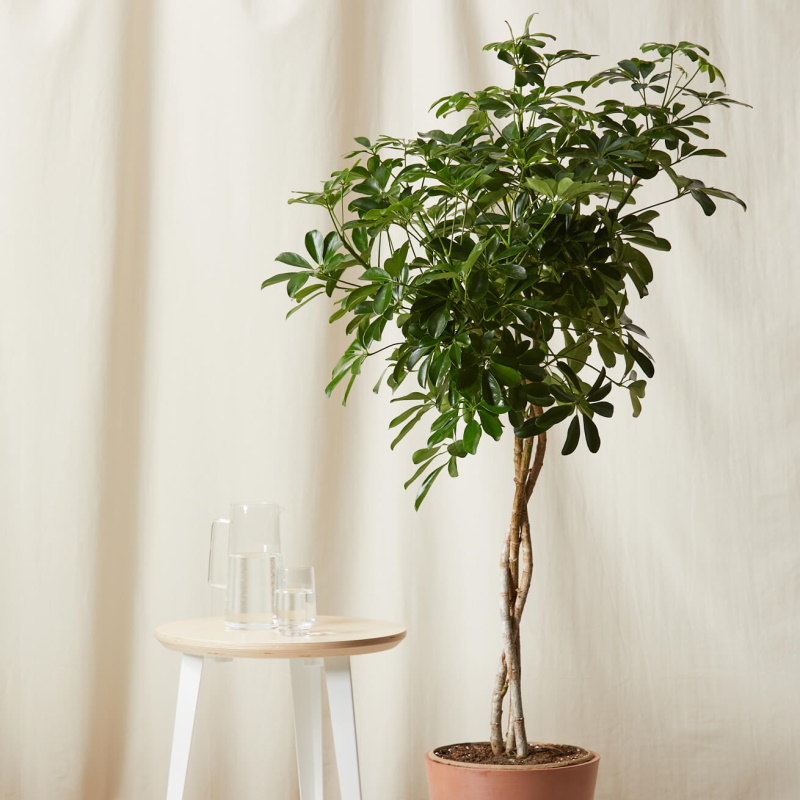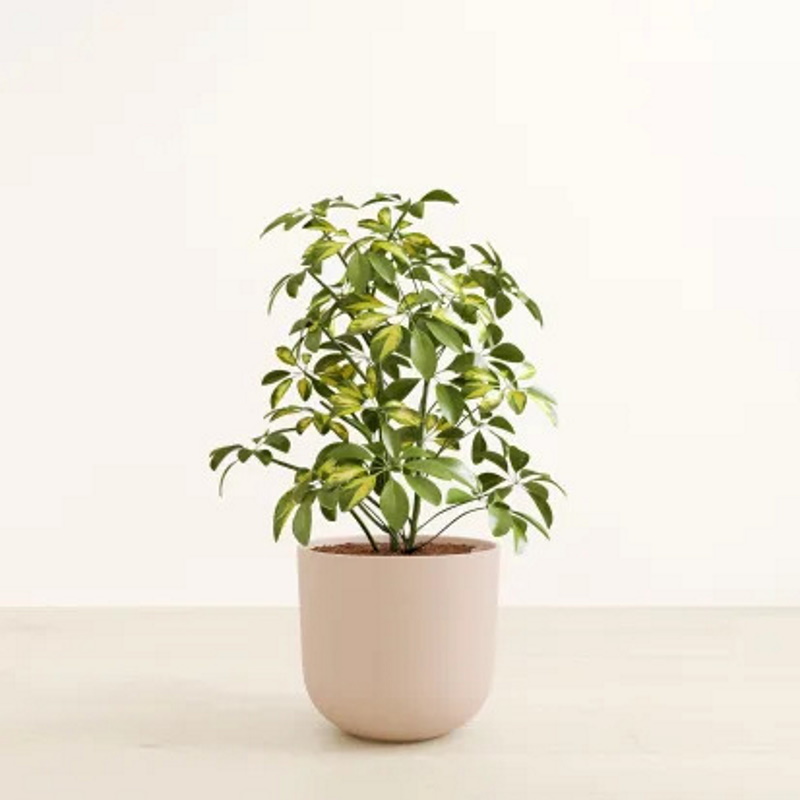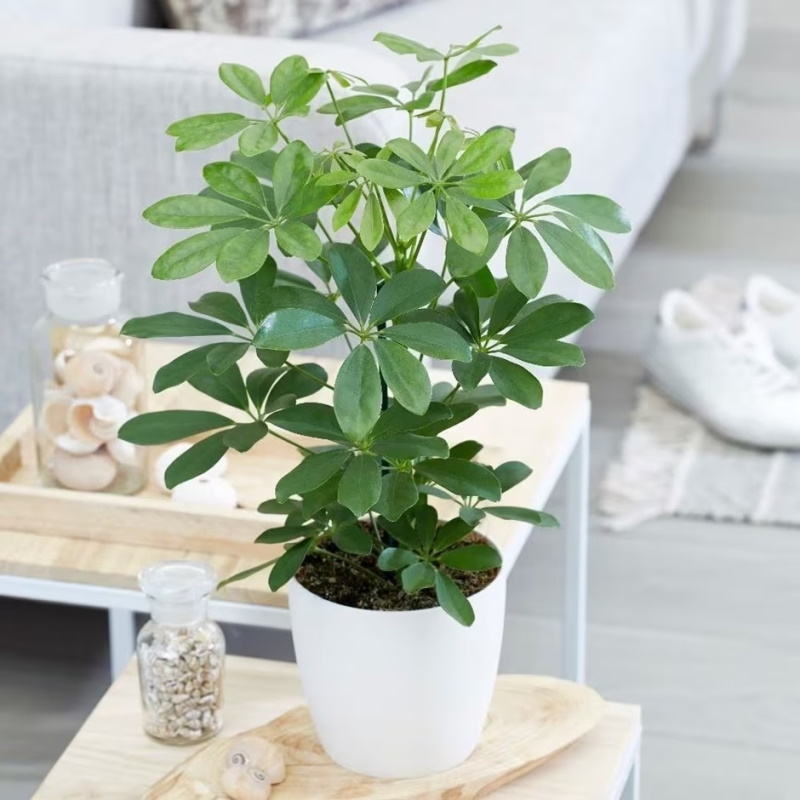How to care for an umbrella plant – 5 expert tips for this tree that doesn't mind neglect
These indoor trees with intriguing foliage can cope with being left alone

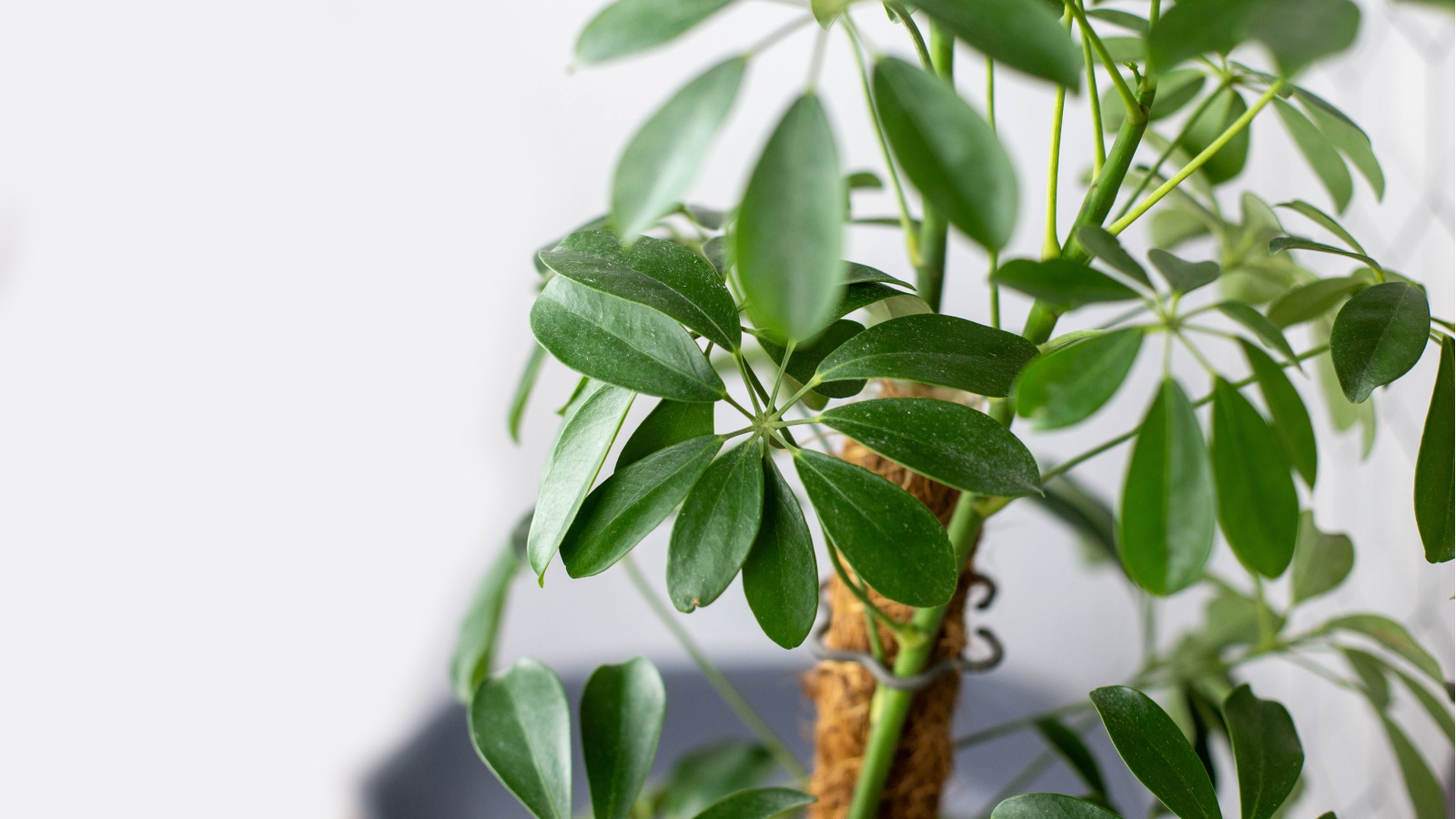
Design expertise in your inbox – from inspiring decorating ideas and beautiful celebrity homes to practical gardening advice and shopping round-ups.
You are now subscribed
Your newsletter sign-up was successful
Want to add more newsletters?

Twice a week
Homes&Gardens
The ultimate interior design resource from the world's leading experts - discover inspiring decorating ideas, color scheming know-how, garden inspiration and shopping expertise.

Once a week
In The Loop from Next In Design
Members of the Next in Design Circle will receive In the Loop, our weekly email filled with trade news, names to know and spotlight moments. Together we’re building a brighter design future.

Twice a week
Cucina
Whether you’re passionate about hosting exquisite dinners, experimenting with culinary trends, or perfecting your kitchen's design with timeless elegance and innovative functionality, this newsletter is here to inspire
If you love houseplants but lead a busy life and can't spend all your time caring for them, a low-maintenance umbrella plant might be the perfect pick for you.
Umbrella plants are also known as Heptapleurum arboricola, formerly Schefflera arboricola. They are popular indoor trees for their dainty spherical clusters of leaves that resemble umbrellas and often have beautiful twisting trunks.
These evergreen trees and shrubs are native to tropical climates of east Asia and can be grown outdoors in US hardiness zones 9-12. As houseplants, they don't mind being ignored and are among the best low-maintenance indoor trees making them a reliable choice for anyone.
Indoors, these plants can grow up to 10 feet tall but you can also get shorter varieties that reach around four feet in height. There are also many variegated type of umbrella trees that offer lovely yellow hues and patterns.
These are one of the easiest tall plants to care for and with just some essential care, yours will thrive for years. Even though it's undemanding, it still needs the right growing conditions, so we've spoken to experts to find out how to care for an umbrella plant.
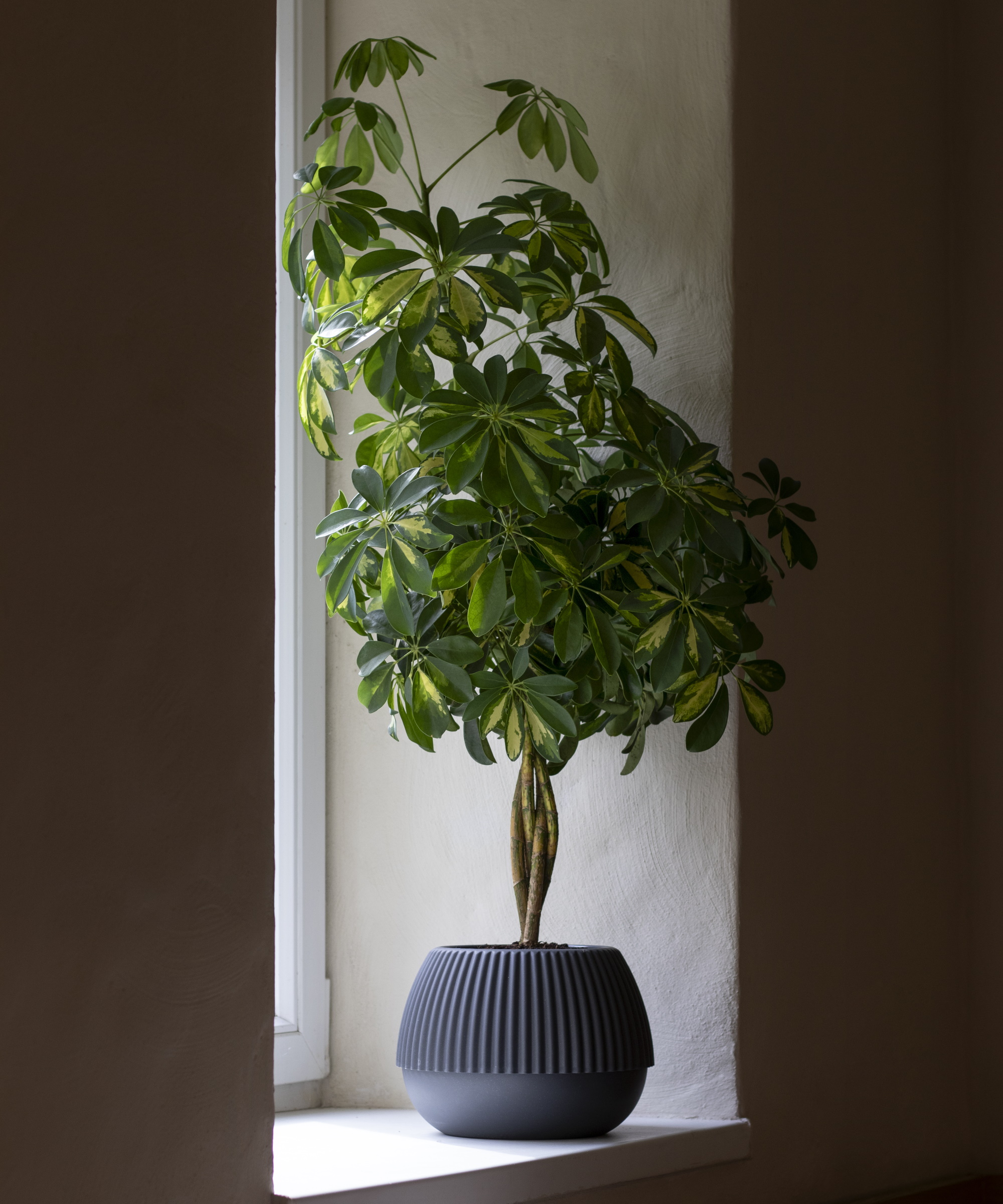
5 expert tips for umbrella tree care
Want to create an indoor jungle but don't have all the time in the world to spend chasing after different plant's needs? Umbrella plants are undemanding houseplants that are happy to be ignored while bringing impactful foliage to your interior space. Here are just five things you should do to keep them thriving for years.
1. Choose a spot with diffused light
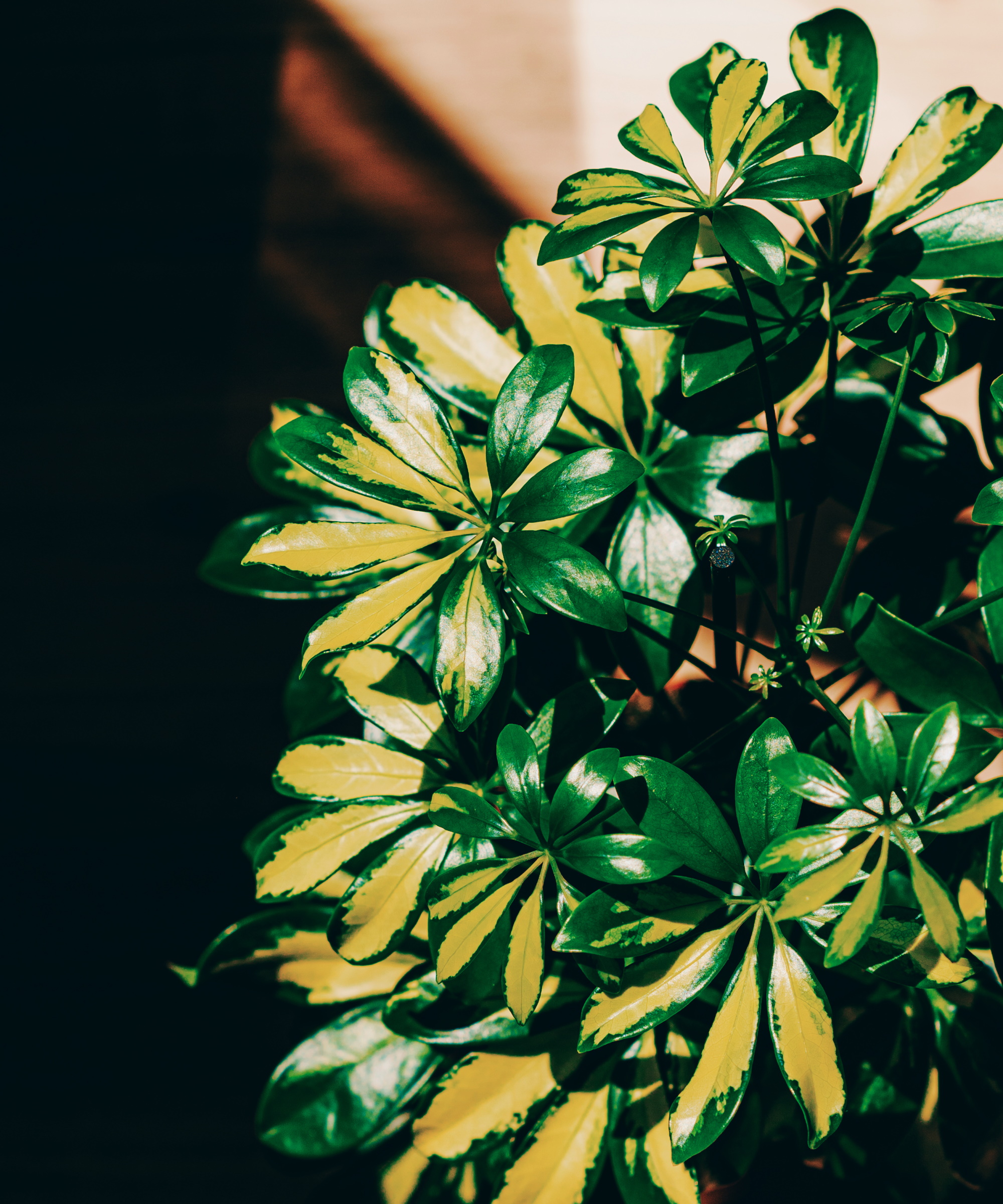
Like many tropical indoor plants naturally found in forests, the foliage of umbrella trees is usually protected by canopies of other trees and is therefore protected from exposure to direct sunlight.
Design expertise in your inbox – from inspiring decorating ideas and beautiful celebrity homes to practical gardening advice and shopping round-ups.
'Direct sun exposure can scorch this plant's delicate foliage, so take care to provide it with plenty of bright but diffused light,' says Julia Omelchenko, botany expert for the Plantum app.
'This is especially important when it comes to variegated shrubs, as they might lose their vivid colors otherwise,' she adds.
Find a nice bright spot for your umbrella tree, out of direct sunlight and it should be happy for a long time. You can use window coverings, like these sheer curtains from Anthropologie, to help create filtered light.
Take care to ensure you don't provide too little light, however, as this could result in leggy growth as the stems reach for light.

Julia is a resident botany expert at Plantum, an app that helps identify plants and improve plant care.Julia Omelchenko is a professional botany expert for the Plantum app that helps users identify plant species, diagnose their conditions, and get specific care advice. She has 4 years of experience consulting on botany-related topics for Plantum (formerly NatureID). Her areas of specialization include phytopathology, plant physiology, and plant biochemistry.
2. Don't water too regularly

Knowing how to water houseplants can be tricky, but luckily umbrella plants aren't too fussy.
'Allow to dry completely between watering and then give it a nice soak,' says Jeannie Psomas, plant expert and owner of The Plant Lady: San Francisco.
Using this method, you can be reassured that your umbrella plant's moisture levels are taken care of as the plant will soak up as much water as it needs.
'Overwatering should be avoided to prevent root rot,' says Julia. 'Water the plant thoroughly and evenly to saturate the entire soil volume and remove excess water,' she adds.
Using containers with drainage holes and a saucer, like this planter from Amazon, can help you to collect and pour away excess water.

Jeannie Psomas owns The Plant Lady: San Francisco, an indoor plant shop located in San Francisco, California which caters to collectors and hobbyists alike. With a strong emphasis on plant science and education, Jeannie's philosophy is that anyone can grow gorgeous plants indoors.
3. Increase humidity
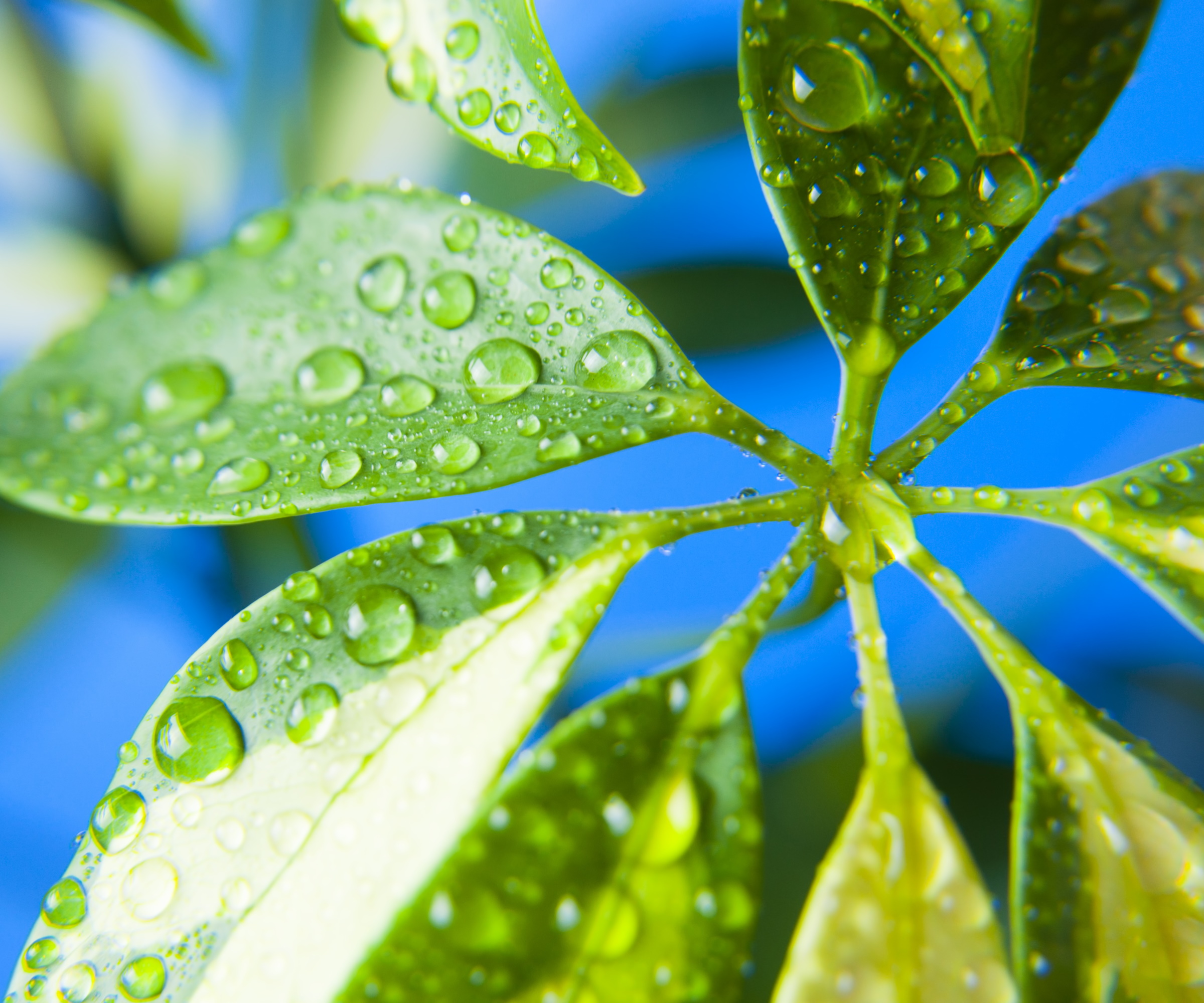
An easy way to keep your umbrella plant happy without too much bother is by creating a humid environment for it.
'Being native to tropical regions, the umbrella plant feels best when the relative humidity is around 60–75%,' says Julia.
Plant parents will be familiar with using a mister daily, like this mister from Greendigs, to increase humidity for plants. However, a more convenient way that requires less attention is using a humidity tray, like this pebble tray from Amazon.
4. Prune to shape
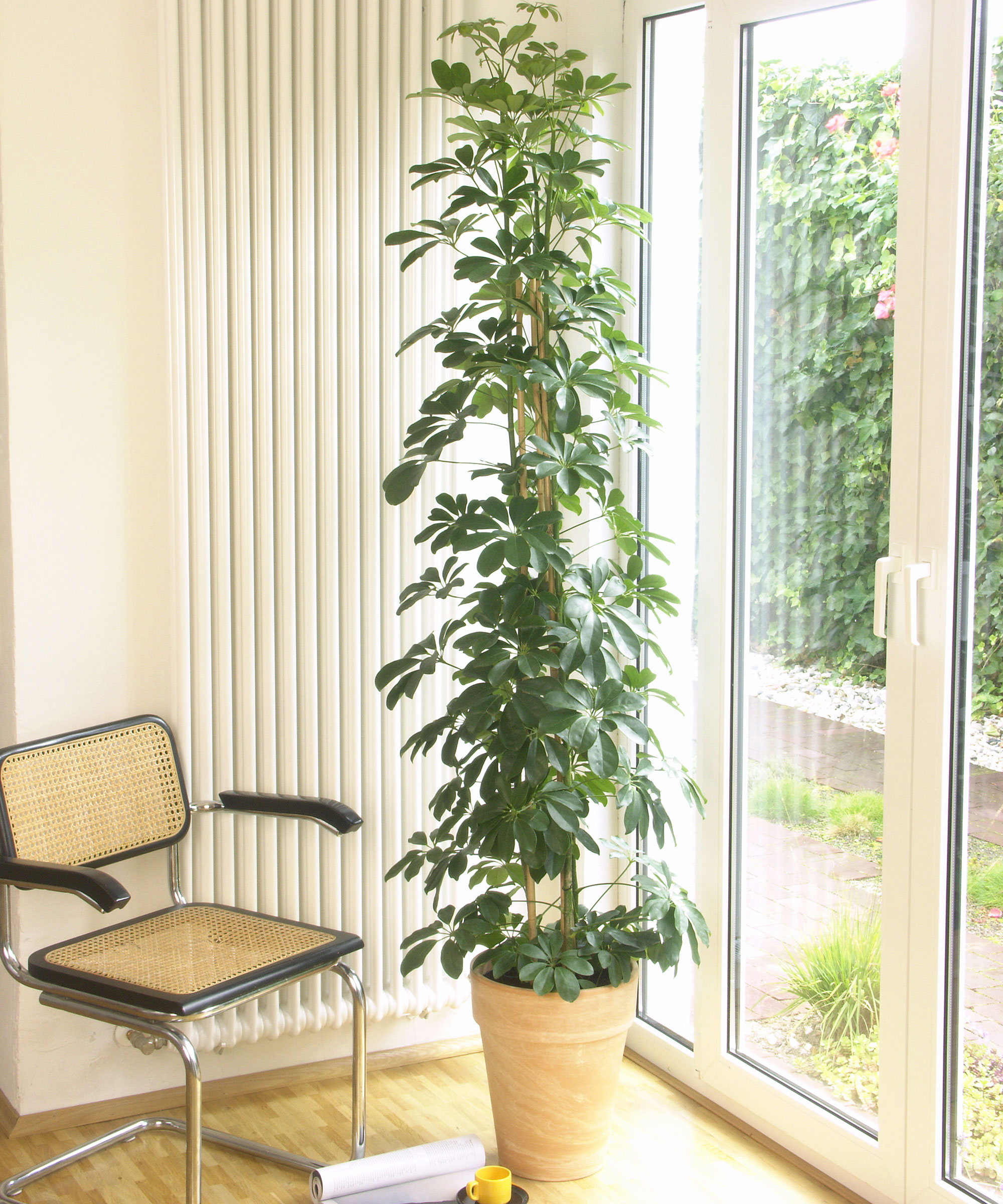
With very little effort, you will soon see your umbrella tree grow bigger and bigger. It's a fast-growing houseplant and can grow unruly if you let it.
If you aren't a fan of this look and would prefer something neater, it can be a good idea to prune your umbrella plant.
'Use sharp scissors or pruning shears, making sure to sanitize them with rubbing alcohol,' says Julia. 'Remove any shoots that have become leggy and bare. You can re-root them as cuttings later to propagate them,' she adds.
Pruning your umbrella plant back to keep it neat and healthy will also encourage further growth for a fuller look.
5. Watch out for pests
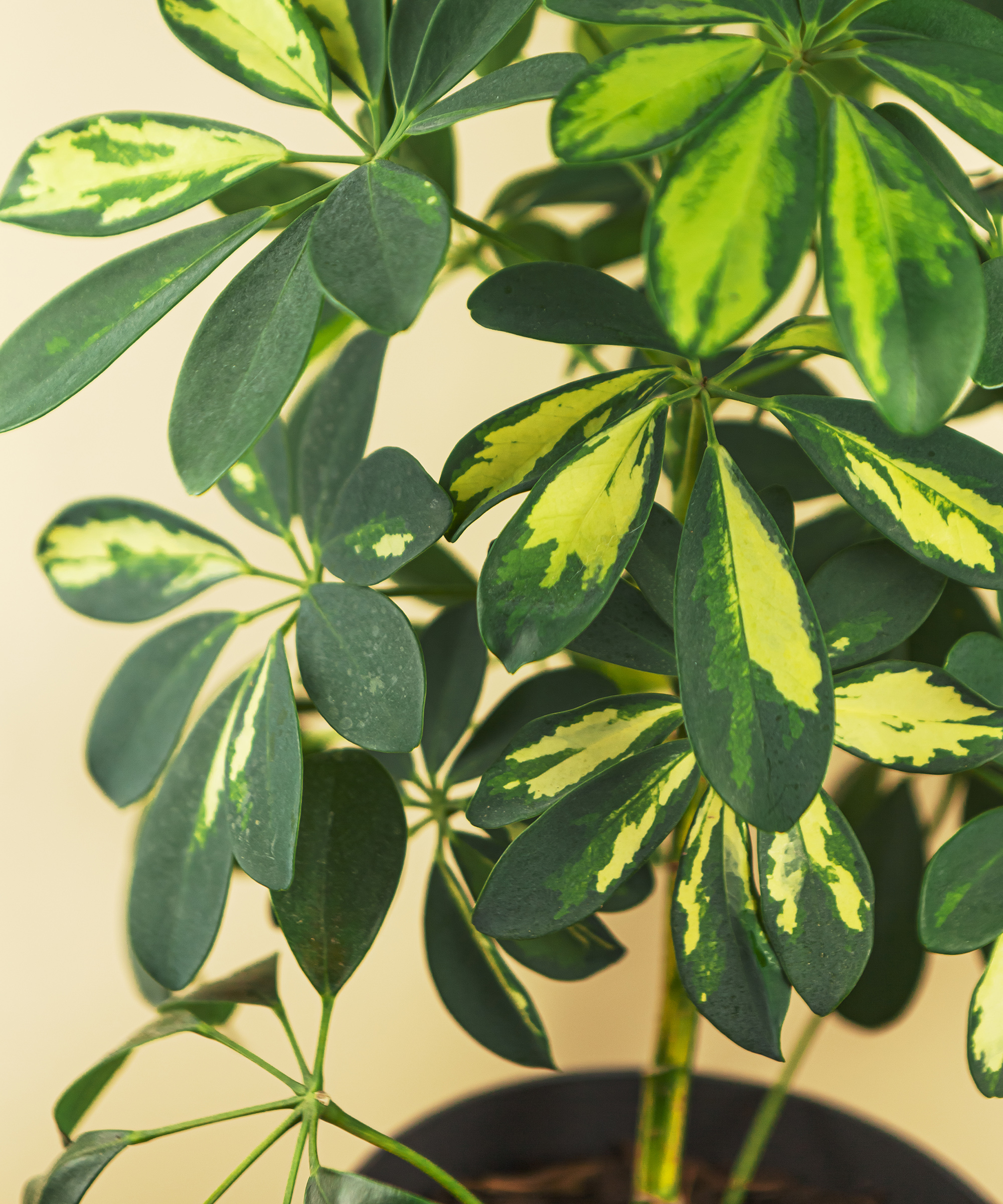
Although you can get away with a bit of neglect with umbrella plants, it's important to still watch out for common houseplant pests and diseases.
'Spider mites, mealie bugs, and scale are all possible if the plant is light-stressed (too much or too little) or staying overly dry for weeks at a time,' says Jeannie.
Improper growing conditions will increase the chances of your umbrella plant attracting pests.
'The best way to prevent severe infestations is to take good care of the shrub—it'll be able to resist pests easier when in good health,' says Julia. 'Inspect the plant for them or their feeding damage regularly. Should you spot either, treat the shrub with an appropriate insecticide or acaricide,' she adds.
Shop umbrella plants online
FAQs
Can you propagate umbrella plants?
Umbrella plants can be propagated easily from cuttings. Using clean, sharp pruning shears or scissors, take cuttings around 4-5 inches long. It's easier to root these cuttings in soil rather than water. Insert the cutting so that half of it is above surface level. Ensure the potting mix is well-draining and keep it warm to encourage roots to develop. Take care not to make common propagation mistakes which could cause your cuttings to fail.
Why are my umbrella plant leaves falling off?
If your umbrella plant's leaves are falling off, it's a sign that it has improper growing conditions. Overwatering and insufficient light are common causes. The best thing to do is to let your umbrella plant dry out if it is oversaturated and water it less often going forward, as these plants are resilient to being left alone. Likewise, ensure it has plenty of bright, indirect light. Direct sunlight can scorch and damage the foliage of umbrella plants.
Umbrella plants won't complain if you leave them alone for a while. They're highly resilient and can cope with neglect, as long as they are placed in good growing conditions. If you are in need of more undemanding plants for trickier spots in your home, these low light plants will be happy in shady corners.

Tenielle is a Gardens Content Editor at Homes & Gardens. She holds a qualification in MA Magazine Journalism and has over six years of journalistic experience. Before coming to Homes & Gardens, Tenielle was in the editorial department at the Royal Horticultural Society and worked on The Garden magazine. As our in-house houseplant expert, Tenielle writes on a range of solutions to houseplant problems, as well as other 'how to' guides, inspiring garden projects, and the latest gardening news. When she isn't writing, Tenielle can be found propagating her ever-growing collection of indoor plants, helping others overcome common houseplant pests and diseases, volunteering at a local gardening club, and attending gardening workshops, like a composting masterclass.
